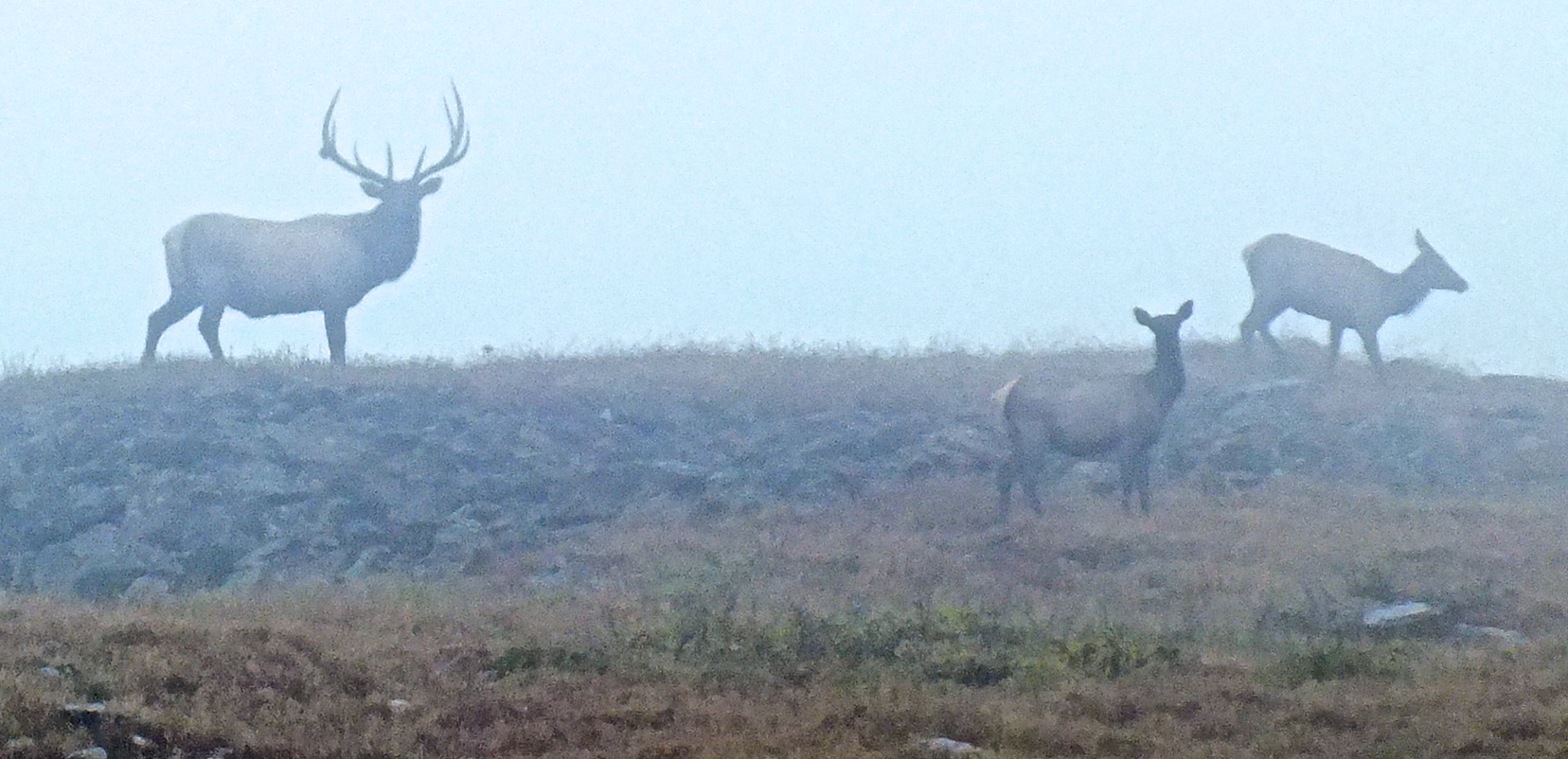 How can God be Holy, Good, and Jealous?
How can God be Holy, Good, and Jealous?
I remember reading long ago Oprah Winfrey saying in an interview that she was turned off to God after hearing God being described as “jealous.”
“This great minister was preaching on how great God was and how omniscient and omnipresent and God is everything and then he said, ‘the Lord thy God is a jealous God.’ I was caught up in the rapture of that moment until he said ‘jealous,’ and something struck me. I was like 27 or 28 and I’m thinking, ‘God is all. God is omnipresent. And God is also jealous?’ God is jealous of me? And something about that didn’t feel right in my spirit…and that is where the search for something more than doctrine started to stir within me.”
Through the years I’ve come across more than one person getting stuck on this perceived character defect. Most recently a friend shared that God commanded Abraham to sacrifice his son, Isaac, “because God was jealous.” (See Genesis chapter 22.)
There are some things I believe those of us who have followed Jesus for a long time take for granted, and this is one of them. It’s obvious to us that God is not jealous of Oprah (neither when she was in her late 20’s, just before she started to host a local morning talk show in Chicago, or now as a successful entertainment mogul.) That kind of thinking can seem silly.
And yet there are, by my count, 25 times in the Bible where God describes Himself or is described as jealous. And elsewhere in Scripture jealousy is pointed out as sinful. So how can God be good, holy, and jealous?
I believe this problem comes down to two things: 1. A misunderstanding of the unique nature of God. 2. The lack of a better term to more accurately describe the type of sinless jealousy that only God can exhibit, due to His unique nature.
(Oh, how I wish I could figure out how to sum up those points more succinctly!)
Ah, well…let’s look at the second point first – the language barrier.
In English we have one word for love that is used quite freely, but can mean many different things. For example, after being married for a few months, my husband and I realized that we needed a different set of bedroom furniture to accommodate the “his and hers-ness” of our clothing. We shopped and found a great set, and about a week after that I walked into the bedroom and had this exchange with my husband:
Me: “I love my new dresser.”
Spouse: “You can’t marry it.”
Me: “I don’t LOVE love my new dresser, I only love it.”
Sigh – it’s easy to see how inadequate the word love is when used as a verb in English. In Greek, there are four words for different kinds of love: agape, eros, philos, and storge. Storge meaning empathy, or affection, philos referring to friendship, eros describing erotic love, and agape is the type of unconditional love which God has for us.
In English we do have two words that describe different types of covetous feelings: envy and jealousy. The difference between the two is accurately defined in one of Homer Simpson’s brighter moments on the long-lasting comedy show:
https://www.youtube.com/watch?v=Tmx1jpqv3RA
According to “vocabulary.com” the words are defined as follows:
“You can feel envy about something you don’t have but want, but you feel jealousy over something you already have but are afraid of losing…”*
Right there we see the limitations of both words when it comes to God, because God has everything He will ever need, and He is never afraid. He doesn’t know what it means to want something He cannot have, nor does He ever tremble in fear of loss.
So what does it mean, then, for God to be jealous? Let’s take a look at the following scenario, and see if this illustration helps:
Imagine that you and your spouse have raised your children with love and care – they are your adorable 4 year old twins. You’ve saved up for months for a vacation to Disney World – and your kids are bursting with excitement!
You and your family get off of the plane, find your rental car, set your things down at the hotel, then you are finally off to the massive entrance gate at Walt Disney World.
As soon as you hand off the tickets and pass through, you sigh and start to take in all in – when out of nowhere, a young couple breezes up and takes each of your children by the hand – your children are enraptured and are swept off their feet by the park and by these total strangers, and they go off to have the time of their lives, while you and your spouse follow along behind.
Wait – who ARE these people? What are they doing with YOUR kids? They belong to you! They don’t even KNOW your children…do they have the best interest of your four year olds at heart? They cannot just sweep in and live your life.
Of course, in real life, hopefully your kids would notice that these strangers are not their parents and would cry and call out for you. And the outrage and fear over this kidnapping occurring before your eyes would be overwhelming and keep the feeling of jealousy from registering in your mind.
But it’s this quality of emotion – in the imaginary scenario of your kids enjoying Disney World with total strangers, not paying one wit of attention to the fact that you are not there – the pain of that loss in front of your eyes, the hurt of the fact that your kids forgot that they belonged to you and seem to rather spend their time with strangers, rather than the fear of that loss – this would be closer to the type of jealousy that God feels.
And we do this to God all the time. Even though we may have pledged our lives to Him – called Him our Lord, Savior, Father – we are constantly letting go of His hand and forgetting who we belong to. For while God does not feel fear, He does feel pain.
It would be different if the kids in the illustration above were in their teens and were joined by their good friends at the gate, and went off to enjoy the park with them. Although that might be painful, it is also part of life, learning to let go of the parental role. But it’s not a part of God’s parental role…we don’t outgrow Him as our Father, as our Lord, as the Lover of our souls, indeed, a love that surpasses all earthly loves.
And this leads us back to the first point I made earlier – that we often misunderstand the unique nature of God. There are certain things about being omnipresent, immutable, omniscient, eternal, omnipotent, perfect, etc. that we aren’t able to completely grasp. (I can’t tell you the last time I’ve experienced any of those characteristics myself.) This uniqueness creates a different type of relationship than that which can exist with anyone or anything else on earth.
God looks silly in our clothes – our shoes don’t fit Him.
And it is due to God’s unique character that He has the capacity for a type of jealousy which we cannot (at least not easily) express. This holy – or Godly – jealousy, if you will, has painful and protective qualities, and even grief. It’s an acknowledgement of not living up to the loyalty we’ve promised to God through our acceptance of Him, of our trust in who He is, and His nature, which always is striving for our best. It’s also an awareness of the fact that there is no other source of life, hope, joy, and love that lasts, and that creates a sadness that is also hard for us to comprehend.
There is a passage from a children’s story, and then a passage from Scripture, that might help us to understand this last point regarding grief. In The Silver Chair, Jill Pole has been showing off in front of her friend, Eustace Scrubb, on the edge of a cliff. When Eustace tries to pull her back, they get into a bit of a scuffle, and Eustace falls over the side. (He does not die, but is blown away out of sight.)
Jill spends quite a bit of time crying over this, and when she’s done she realizes that she’s become very thirsty. She discovers a stream, but beside it is a great lion – actually the Lion…
“If I run away, it’ll be after me in a moment,” thought Jill. “And if I go on, I shall run straight into it’s mouth.” Anyway, she couldn’t have moved if she had tried, and she couldn’t take her eyes off it. How long this lasted, she could not be sure; it seemed like hours. And the thirst became so bad that she almost felt she would not mind being eaten by the lion if only she could be sure of getting a mouthful of water first.
“If you’re thirsty, you may drink.”
…For a second she stared here and there, wondering who had spoken. Then the voice said again, “If you are thirsty, come and drink.” …she had seen its lips move this time, and the voice was not like a man’s. It was deeper, wilder, and stronger; a sort of heavy, golden voice. It did not make her any less frightened than she had been before, but it made her frightened in rather a different way.
“Are you not thirsty?” said the Lion.
“I’m dying of thirst,” said Jill.
“Then drink,” said the Lion.
“May I — could I — would you mind going away while I do?” said Jill.
The Lion answered this only by a look and a very low growl. And as Jill gazed at its motionless bulk, she realized that she might as well have asked the whole mountain to move aside for her convenience.
The delicious rippling noise of the stream was driving her nearly frantic.
“Will you promise not to — do anything to me, if I do come?” said Jill.
“I make no promise,” said the Lion.
Jill was so thirsty now that, without noticing it, she had come a step nearer.
“Do you eat girls?” she said.
“I have swallowed up girls and boys, women and men, kings and emperors, cities and realms,” said the Lion. It didn’t say this as if it were boasting, nor as if it were sorry, nor as if it were angry. It just said it.
“I daren’t come and drink,” said Jill.
“Then you will die of thirst,” said the Lion.
“Oh dear!” said Jill, coming another step nearer. “I suppose I must go and look for another stream then.”
“There is no other stream,” said the Lion.”
~ C.S. Lewis, The Silver Chair
Imagine for a moment that you are the Lion, and you know very well that there is no other stream. How would you feel if Jill, learning this truth, ran off anyway in search of another means to quench her thirst? If you cared for Jill, wouldn’t it make you angry that she’s trying to drink in tree bark, or sand, or salt water, when you know that these things won’t satiate her desire? Part of holy or Godly jealousy is a sorrow that comes from knowing this – that only God can satisfy.
I’ve felt this type of sad anger with my patients (I’m a Physical Therapist) when they aren’t following the steps that I know will help them heal faster – walking on an unstable broken leg, or not wearing compression gloves that will prevent their fingers from growing webs between them after a burn injury. I’ve seen cases that have healed the wrong way – bone can grow into a person’s muscle belly, and I’ve met people with webbed hands…and that knowledge stirs up a frustrated exasperation when people choose to not listen or comply with medical advice.
You see, God is not so much jealous of us (Oprah Winfrey’s mistake), but rather He is jealous for us. For there is no other stream.
Isaiah 55
“Come, all you who are thirsty,
come to the waters;
and you who have no money,
come, buy and eat!
Come, buy wine and milk
without money and without cost.
2 Why spend money on what is not bread,
and your labor on what does not satisfy?
Listen, listen to me, and eat what is good,
and you will delight in the richest of fare.
3 Give ear and come to me;
listen, that you may live.
I will make an everlasting covenant with you,
my faithful love promised to David.
4 See, I have made him a witness to the peoples,
a ruler and commander of the peoples.
5 Surely you will summon nations you know not,
and nations you do not know will come running to you,
because of the Lord your God,
the Holy One of Israel,
for he has endowed you with splendor.”
6 Seek the Lord while he may be found;
call on him while he is near.
7 Let the wicked forsake their ways
and the unrighteous their thoughts.
Let them turn to the Lord, and he will have mercy on them,
and to our God, for he will freely pardon.
8 “For my thoughts are not your thoughts,
neither are your ways my ways,”
declares the Lord.
9 “As the heavens are higher than the earth,
so are my ways higher than your ways
and my thoughts than your thoughts.
10 As the rain and the snow
come down from heaven,
and do not return to it
without watering the earth
and making it bud and flourish,
so that it yields seed for the sower and bread for the eater,
11 so is my word that goes out from my mouth:
It will not return to me empty,
but will accomplish what I desire
and achieve the purpose for which I sent it.
12 You will go out in joy
and be led forth in peace;
the mountains and hills
will burst into song before you,
and all the trees of the field
will clap their hands.
13 Instead of the thornbush will grow the juniper,
and instead of briers the myrtle will grow.
This will be for the Lord’s renown,
for an everlasting sign,
that will endure forever.”
(NIV)
*https://www.vocabulary.com/articles/chooseyourwords/envy-jealousy/
 I am writing this in response to many of the comments/emails I received after my last post.
I am writing this in response to many of the comments/emails I received after my last post. The other day, Zac and I went into a retail store and were greeted by an associate.
The other day, Zac and I went into a retail store and were greeted by an associate. How can God be Holy, Good, and Jealous?
How can God be Holy, Good, and Jealous?





